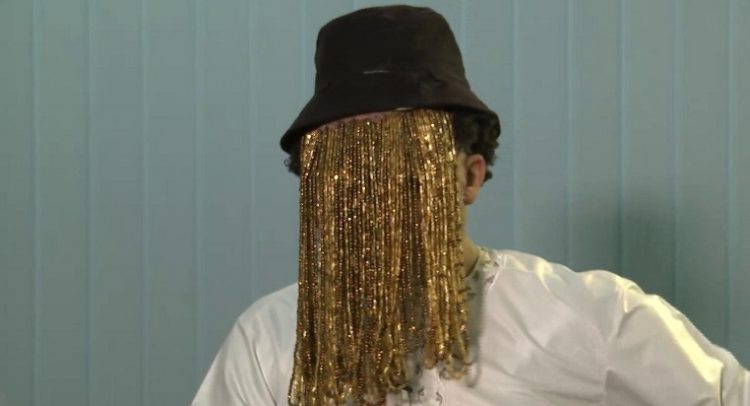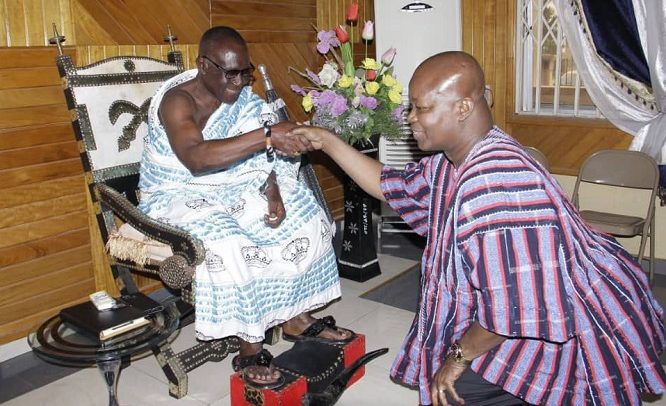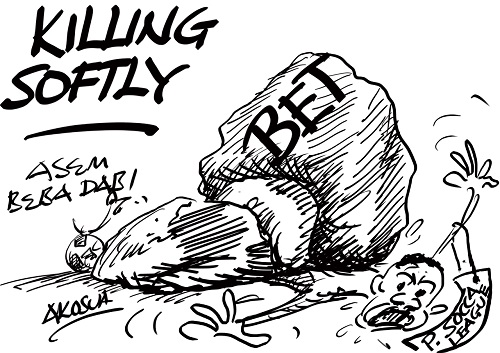
Renowned Ghanaian undercover journalist Anas Aremeyaw Anas has vowed to step up the fight against "criminals and murderers" following the gangland-style assassination of his colleague Ahmed Hussein-Suale. The investigative journalist Hussein-Suale was shot by gunmen last week in a targeted attack that Anas believes may have been intended for him.
"What we're doing is getting on the nerves of the criminals and murderers in our society," Anas told RFI in an interview, describing how it had spurred on his team at Tiger Eye Private Investigations to push the envelope even further.
Q&A: Anas Aremeyaw Anas
Hussein-Suale was shot by gunmen on a motorbike in the Madina area of Accra, suffering two gunshot wounds to the chest and one to the neck, dying on the spot.
"One thing that keeps us going is the fact that we know that wherever he is, he's looking at us and his wish would be that we would persevere," said Anas.
The murdered reporter had been involved in an investigation into corruption in Ghana's football leagues. He had kept his identity a secret, but was publicly identified and threatened by ruling party MP Kennedy Agyapong.
'Exemplary' reporter
Anas described Hussein-Suale as a "brilliant chap" who was "well-measured", often taking his time to analyse things before forming a conclusion. "He was an exemplary journalist, very good at writing," said Anas, explaining how Hussein-Suale acted as the collective memory of the team, "virtually the encyclopaedia".
"We feel that he's left a gaping hole in our team. It will be very difficult to replace him," said Anas, who is known for his trademark beaded mask that he uses to protect his identity and his hard-hitting undercover investigations revealing corruption.
Anas met with Hussein-Suale the day of his murder, discussing three stories they were working on and talking about a statement they intended to send to Ghana's attorney general, according to Anas. Hussein-Suale was drafting the document, but he was shot before it was edited and finalised.
Gunmen targeting Anas?
"If they can shoot my colleague, why can't they shoot me?" said Anas, wondering whether the hit on Hussein-Suale was actually destined for him.
"I know it was me they were looking for," Anas told RFI. "When they knew it was difficult to get me, they shot him. It is also possible that they shot him thinking they had shot me." Anas said he felt "very, very uncomfortable" after learning about the shooting.
Remembering Hussein-Suale's tenacity and determination, Anas said it helped him focus on what was important, ensuring that the killers were brought to justice. "If he was alive and I had died, he would never give up," he added.
FBI support for police investigation
US Congressman Hank Johnson has encouraged the US State Department to provide support to the Ghanaian authorities in their investigation into the murder, through the Federal Bureau of Investigation (FBI).
"Whichever way that we can find these murderers, even if it takes the whole world to find the murderers, I would want that to happen," said the undercover reporter, adding that the killers still pose a threat to his team at Tiger Eye Private Investigations.
Johnson, a Democrat Congressman for Georgia, also said that the Ghanaian MP who exposed the identity of Hussein-Suale and made public threats against him on television should be slapped with a US travel ban and economic sanctions.
Public threats against Hussein-Suale
Agyapong had previously encouraged television views to beat up the investigative journalist, describing him as "very dangerous". He reassured anybody who carried out his threats, "whatever happens, I'll pay".
Since being questioned by police Agyapong has gone on to suggest that Anas should be considered a suspect in Hussein-Suale's murder, according to reports in Ghanaian media.
Anas said Agyapong's comments were "ridiculous", but acknowledged that he had the right to make such remarks in a democracy, encouraging the police to broaden the investigation to ensure the killers are caught. "If you have nothing to hide you shouldn't worry about being investigated," said Anas.
Revealing his identity
The public identification of Hussein-Suale was key to his murder, according to Anas, although he was careful not to specifically accuse Agyapong who distributed photographs of the murdered journalist.
"You may not have an intention of harming, you may not have an intention of killing, but you cannot tell the intention that someone else has," said Anas, saying that nobody knew Hussein-Suale's identity until then.
Broadcasting comments considered incitement to commit violence are covered by Ghana's 2014 Broadcasting Bill with broadcasters threatened with "severe sanctions". However, the passing of this bill into law has been repeatedly delayed.
"It was incitement to commit violence," said Anas, in discussion of Agyapong's public threats towards Hussein-Suale. "I would have wished the law enforcement agencies would have stepped in to stop these people from airing such content," said the journalist. "Let his own conscience judge him."
Read Full Story
























Facebook
Twitter
Pinterest
Instagram
Google+
YouTube
LinkedIn
RSS